| Article ID | Journal | Published Year | Pages | File Type |
|---|---|---|---|---|
| 4269886 | The Journal of Sexual Medicine | 2014 | 8 Pages |
IntroductionThe specific cognitive–affective mechanisms involved in the activation and regulation of the subjective and genital components of sexual arousal are not fully understood yet.AimThe aim of the present study was to investigate the contribution of self-reported thoughts and affect to the prediction of women's subjective and genital responses to erotica.MethodsTwenty-eight sexually functional women (mean age = 32, SD = 6.29) were presented with sexually explicit and nonexplicit romantic films. Genital responses, subjective sexual arousal, state affect, and self-reported thoughts were assessed.Main Outcome MeasuresVaginal pulse amplitude was measured using a vaginal photoplethysmograph. Subjective sexual arousal, thoughts, and affective responses were assessed through self-report scales.ResultsCorrelations between subjective and physiological sexual arousal were low (r = −0.05, P > 0.05). Self-reported thoughts and affect were significant predictors of subjective sexual arousal. The strongest single predictor of subjective arousal was sexual arousal thoughts (e.g., “I'm getting excited”) (β = 0.63, P < 0.01). None of the cognitive or affective variables predicted women's genital responses.ConclusionsOverall, results support the role of cognitive (self-reported thoughts) and affective dimensions in women's subjective sexual arousal to erotica and, consistent with previous findings, suggest that subjective and physiological sexual arousal may be impacted by different processes. Vilarinho S, Laja P, Carvalho J, Quinta-Gomes AL, Oliveira C, Janssen E, and Nobre PJ. Affective and cognitive determinants of women's sexual response to erotica. J Sex Med 2014;11:2671–2678.
